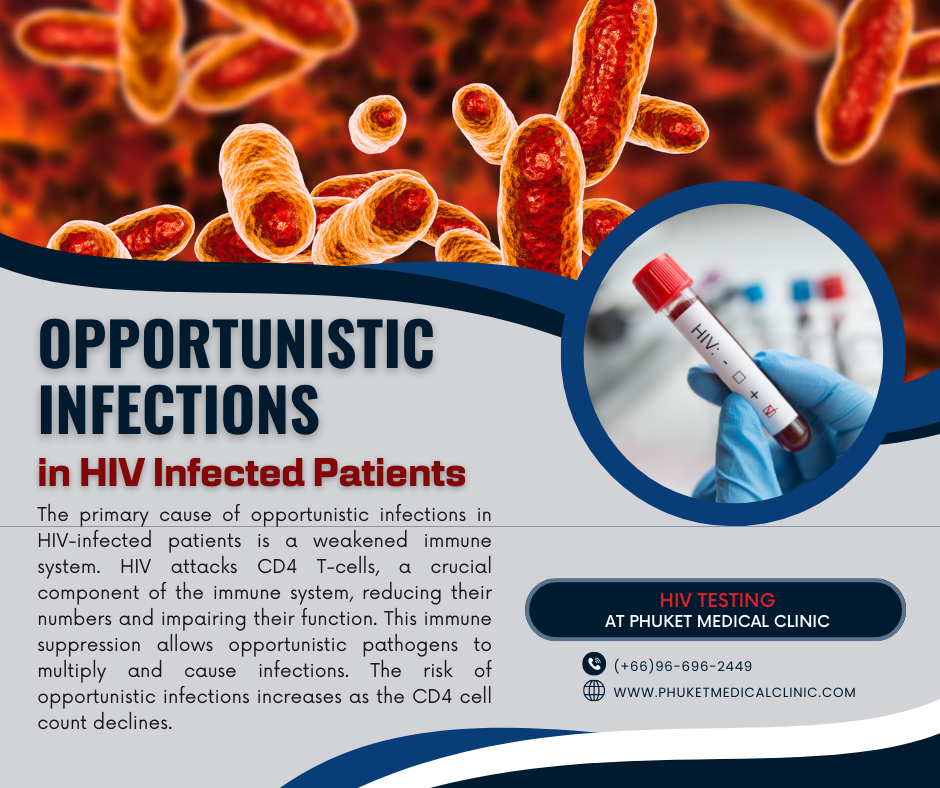In the realm of HIV/AIDS, opportunistic infections are a significant concern for individuals living with the virus. These infections take advantage of a weakened immune system, often presenting a major threat to the health and well-being of HIV-infected patients. This article aims to provide a comprehensive understanding of opportunistic infections in HIV-infected patients, their causes, symptoms, prevention, and treatment options.
What Are Opportunistic Infections?
Opportunistic infections are diseases caused by pathogens such as bacteria, viruses, fungi, or parasites, which usually do not harm individuals with a healthy immune system. However, in people living with HIV/AIDS, a compromised immune system makes them susceptible to these infections. Common opportunistic infections include Pneumocystis pneumonia (PCP), tuberculosis, candidiasis, and cytomegalovirus (CMV) infection.

Causes of Opportunistic Infections
The primary cause of opportunistic infections in HIV-infected patients is a weakened immune system. HIV attacks CD4 T-cells, a crucial component of the immune system, reducing their numbers and impairing their function. This immune suppression allows opportunistic pathogens to multiply and cause infections. The risk of opportunistic infections increases as the CD4 cell count declines.
Recognizing Symptoms
Symptoms of opportunistic infections can vary widely, depending on the specific pathogen involved and the affected organ or system. Common symptoms may include fever, fatigue, cough, diarrhea, weight loss, and skin rashes. It is essential for HIV-infected individuals to promptly report any unusual symptoms to their healthcare provider.
Prevention Strategies
Preventing opportunistic infections is a critical aspect of HIV care. Some key prevention strategies include:
- Antiretroviral Therapy (ART): Initiating and adhering to ART can significantly boost the immune system, reducing the risk of opportunistic infections.
- Vaccinations: HIV-infected individuals should stay up-to-date on recommended vaccines, such as the flu vaccine and pneumococcal vaccine.
- Prophylactic Medications: Depending on CD4 cell counts and specific risk factors, healthcare providers may prescribe prophylactic antibiotics or antifungal medications to prevent certain infections.
- Safe Sex and Hygiene: Practicing safe sex and maintaining good personal hygiene can reduce the risk of sexually transmitted infections and skin-related opportunistic infections.
Treatment Options
Treatment for opportunistic infections in HIV-infected patients often involves medications that target the specific pathogen responsible for the infection. For example:
- Antifungal drugs like fluconazole may be used to treat candidiasis.
- Antiviral medications are employed to manage CMV and herpesvirus infections.
- Antibiotics like azithromycin are prescribed for the prevention and treatment of PCP.
- TB treatment is an extended course of antibiotics and often requires close monitoring.
It’s crucial for individuals living with HIV to work closely with their healthcare providers to develop a personalized treatment plan.
Opportunistic infections continue to be a significant concern for HIV-infected patients. Understanding the causes, recognizing symptoms, and implementing preventive measures are essential steps in managing these infections effectively. With the advent of antiretroviral therapy and improved healthcare strategies, the prognosis for HIV-infected individuals has significantly improved, and many opportunistic infections can be prevented or successfully treated. Regular medical check-ups and open communication with healthcare providers are vital in ensuring the best possible outcomes for those living with HIV/AIDS.
HIV Testing at Phuket Medical Clinic
Phuket Medical Clinic : Close, Expert Care. Dedicated Medical Professionals and Skilled Team providing Consultation and Treatment. Walk-in or Scheduled Appointments for Convenient and Efficient Services.
Book an appointment online : https://phuketmedicalclinic.youcanbook.me
Daily Open 🕙 10:00-18:00
Contact number ☎️ 096-696-2449
Line id : @pmcphuket or https://lin.ee/R1TKRDo
Map 📌https://goo.gl/maps/xu45eTQUTjgpukJa7
Website 🌐https://phuketmedicalclinic.com
Feel free to consult with a doctor or ask further questions anytime.
Inbox : m.me/100483916443107
#healthcareclinic #คลินิกภูเก็ต
Phuket #Clinic #ภูเก็ตเมดิคอลคลินิก
#Phuketmedicalclinic
